As the ins-and-outs of healthcare administration continue to evolve, hospitals, clinics, insurance companies, pharmaceutical companies, and others will need qualified, trained professionals with the most up-to-date industry knowledge and skill sets. In particular, employers will be looking for people with a deep understanding of the intersection between healthcare and business, and perhaps the best way to demonstrate that is with an MBA in Healthcare (whether it’s Healthcare Management, Administration, Policy, Systems, or any other iteration). While many healthcare workers understand their day-to-day workplace operations, a talent premium will be placed on those who can apply optimal business strategies to their healthcare environment.
According to the BLS, the field is expected to grow 19 percent from 2014 to 2024, much faster than other occupations, and will add 2.3 million jobs, more than any other field; healthcare administration itself will make up about 60,000 of those jobs and grow 17%. If you’re a current healthcare professional — or even thinking about entering the field — these numbers look good, but jobs will remain competitive — and an advanced degree may prove the difference-maker. Check out our top 10 online programs below, which are designed as flexible, affordable alternatives to the traditional on-campus track, and with the exact same diploma.
Methodology
- Affordability (1/3):
- Average indebtedness of program graduates in the last calendar year.
- Percentage of graduates who needed to take on student loan debt.
- Support Services (1/3):
- Online-specific flexibility, accessibility and support measures for online and non-traditional students
- Quality Classes (1/3):
- The average class size
- The percentage of faculty with terminal degrees in their field
1. West Texas A&M University – Canyon, Texas
![]()
Founded in 1910, West Texas A&M has a total enrollment of 9,500 and is ranked among the top public schools in the region. US News, Princeton Review, Newsweek, and The Daily Beast have all highlighted its campus and academics. With a 21:1 student-to-faculty ratio, students enjoy a collaborative, peer-to-peer learning experience while also getting personalized instruction. A third of the classes have fewer than 20 students, and just 10% have over 50.
West Texas A&M’s online MBA in Healthcare Management consists of 37 credits (9 in the emphasis), including classes like Accounting in Health Care Organizations, Marketing, Organizational Behavior, Project Management, Information Technology Management, Data and Information Management, and Financial Management of Biotechnology and Health Care. WT’s online track is among the highest rated in the country, with special emphasis given to affordability and veteran benefits. For maximum flexibility, students can complete the degree 100% online or via hybrid delivery, four entry dates are available, and an optional accelerated track allows the degree to be completed in as little as 12-18 months. (Traditional degree completion is 2 years.) Applicants should have earned a 3.0 undergraduate GPA, but GMAT scores are not required. It is accredited by the AACSB.
- Homepage
- Tuition Per Credit: $365
2. Arkansas State University – Jonesboro, Arkansas
 Arkansas State University is the flagship university of the ASU system, the second largest in the state. Located in Jonesboro, the school’s enrollment stands at 13,000 students from across the globe, including Saudi Arabia, South Africa, Bangladesh, India, Nepal, China, Japan, Vietnam, and South Korea, among others. The school’s student-to-faculty ratio of 17:1, and average class size of 27, support an intimate and collaborative learning environment with personalized instruction. Among the school’s 70,000+ alumni, distinguished graduates include Governor Mark Beebe, 4 Olympic gold medalists, and numerous professional athletes.
Arkansas State University is the flagship university of the ASU system, the second largest in the state. Located in Jonesboro, the school’s enrollment stands at 13,000 students from across the globe, including Saudi Arabia, South Africa, Bangladesh, India, Nepal, China, Japan, Vietnam, and South Korea, among others. The school’s student-to-faculty ratio of 17:1, and average class size of 27, support an intimate and collaborative learning environment with personalized instruction. Among the school’s 70,000+ alumni, distinguished graduates include Governor Mark Beebe, 4 Olympic gold medalists, and numerous professional athletes.
ASU’s online MBA in Healthcare Administration consists of 36 credits, divided between core and emphasis courses, including Healthcare Policies and Ethics, Current Issues in Healthcare Administration, Services Marketing Strategy Development, Strategic Management for Healthcare Organizations, Global Strategic Initiatives, and Management Information Systems. All course work is designed to accommodate working professionals and allow for maximum flexibility. Including a top overall ranking from US News, the program has been highlighted for affordability and veteran services. It is accredited by the AACSB.
- Homepage
- Tuition Per Credit: $587
3. Ball State University – Muncie, Indiana
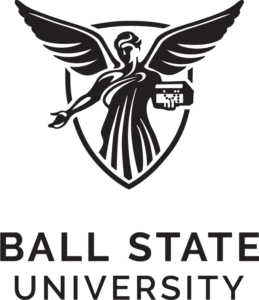 Founded in 1918, Ball State University has an enrollment of 21,000, including students from 48 states, 43 countries, and each of Indiana’s 92 counties. A member of the American Association of State Colleges and Universities, Princeton Review ranks Ball State as one of the top colleges in its region. The school’s 16:1 student-to-faculty ratio helps support an intimate, collaborative learning experience, and with 90% record of professors teaching classes, students can expect personalized instruction. The immersive learning programs incorporate research projects with community partners and capstone work to provide hands-on opportunities.
Founded in 1918, Ball State University has an enrollment of 21,000, including students from 48 states, 43 countries, and each of Indiana’s 92 counties. A member of the American Association of State Colleges and Universities, Princeton Review ranks Ball State as one of the top colleges in its region. The school’s 16:1 student-to-faculty ratio helps support an intimate, collaborative learning experience, and with 90% record of professors teaching classes, students can expect personalized instruction. The immersive learning programs incorporate research projects with community partners and capstone work to provide hands-on opportunities.
Ball State offers an online MBA in Health Economics, Policy, and Administration (30 credits) preparing students for work in pharmaceuticals, insurance, healthcare administration, and healthcare finance. Core courses include Entrepreneurial Leadership, Statistics and Quantitative Methods, Information Systems, Managerial Finance, and Marketing Management, among others. For maximum flexibility, students can opt to complete courses 100% online or via hybrid, and a certificate track is available as well. (Other certificates include Business Essentials for Professionals and Professional Sales Management.) It is accredited by the AACSB.
- Homepage
- Tuition Per Credit: $590
4. Fort Hays State University – Hays, Kansas
 Founded in 1902, Fort Hays State University is the fourth-largest public university in Kansas with 11,200 students. With an increasing demand for flexible, affordable education, half of FHSU students take online courses through the university’s Virtual College, which offers 40 online associate’s, bachelor’s, and master’s degrees. FHSU’s 16:1 student-to-faculty ratio combines the best of both collaborative education and individualized instruction. Nearly half of all classes have less than 20 students, and less than 5% have 50 or more. The university also emphasizes affordability, and its tuition places is among the lowest 2% in the country. The online center is accredited by the Higher Learning Commission.
Founded in 1902, Fort Hays State University is the fourth-largest public university in Kansas with 11,200 students. With an increasing demand for flexible, affordable education, half of FHSU students take online courses through the university’s Virtual College, which offers 40 online associate’s, bachelor’s, and master’s degrees. FHSU’s 16:1 student-to-faculty ratio combines the best of both collaborative education and individualized instruction. Nearly half of all classes have less than 20 students, and less than 5% have 50 or more. The university also emphasizes affordability, and its tuition places is among the lowest 2% in the country. The online center is accredited by the Higher Learning Commission.
FHSU’s online MBA in Healthcare Management consists of 34 credits, including 25 core and 9 concentration credits, which can be customized to fit students’ areas of professional interest. Example classes include Administration Management in Health Care Organizations, Complexity in Healthcare Organizations, Global Health, Legal Issues in Health Care, and Health Promotion Programming. All courses are designed for maximum flexibility to accommodate working professionals and adult learners, and the program utilizes a wide variety of technology tools to streamline and enhance course material, like Skype, WebX, Blackboard, YouTube, and Google Drive. As one of US News‘ top online programs, alumni can be found in leadership roles at Wal-Mart, Texas Instruments, IBM, Koch Industries, Blue Cross/Blue Shield, GE, IBM, and the US Department of Agriculture.
- Homepage
- Tuition Per Credit: $400
5 (tied). DeSales University
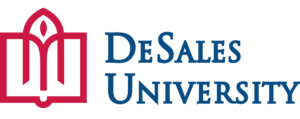
DeSales University, founded in 1964 in Center Valley, PA, has a total enrollment of about 3,100. One of the top-ranked schools in its region, DeSales has also received high marks for veterans services and overall value. The school’s 13:1 student-to-faculty ratio is excellent, allowing for intimate, individualized instruction along with peer-to-peer learning opportunities. Nearly 60% of all classes have fewer than 20 students, and less than 3% have 50 or more. As a private Catholic university, it has been The Newman Guide to Choosing a Catholic College.
DeSales offers an online MBA in Health Care Systems Management that consists of 12 courses: 7 core, 4 concentration, and a Policy and Strategy capstone. Among the available healthcare courses include Principles and Strategies for Managed Healthcare, Community Health Assessment and Planning, Contemporary Issues in Healthcare Policy, Management of Information and Communication Technologies in Healthcare Systems, Legal Aspects of Health Systems Management, and Issues in Quality Management for Healthcare Systems; students can customize as necessary. All courses are designed for maximum flexibility, including synchronous and asynchronous delivery options, and there are multiple start dates throughout the year to accommodate individuals’ schedules. All students have access to an advisor and tuition is “all inclusive” – meaning no additional fees for technology, tutoring, or any other student support resources. It is accredited by the AACSB.
- Homepage
- Tuition Per Credit: $815
5 (tied). University of Wisconsin – Eau Claire, Wisconsin
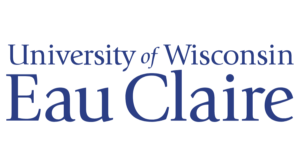 Founded in 1916, Wisconsin – Eau Claire has a total enrollment of about 10,000. It is ranked among the top 5 public schools in the region by US News, and holds high marks from Kiplinger’s Personal Finance, Washington Monthly and Money for best overall value. Princeton Review has named it among the most environmentally responsible colleges and universities in the United States and Canada. The university’s 21:1 student-to-faculty ratio supports a vibrant, collaborative educational setting, while also allowing for individualized instruction. More than 60% of classes consist of 20-49 students, and less than 30% have more than 50. Other hallmarks include an emphasis on real-world, experiential learning and community service: 7,000 students generate more than 380,000 community-service hours each year.
Founded in 1916, Wisconsin – Eau Claire has a total enrollment of about 10,000. It is ranked among the top 5 public schools in the region by US News, and holds high marks from Kiplinger’s Personal Finance, Washington Monthly and Money for best overall value. Princeton Review has named it among the most environmentally responsible colleges and universities in the United States and Canada. The university’s 21:1 student-to-faculty ratio supports a vibrant, collaborative educational setting, while also allowing for individualized instruction. More than 60% of classes consist of 20-49 students, and less than 30% have more than 50. Other hallmarks include an emphasis on real-world, experiential learning and community service: 7,000 students generate more than 380,000 community-service hours each year.
Wisconsin’s online MBA is ranked 12th overall and 7th for veterans, consisting of 17 core credits with 13 electives credits. For Health Care Administration, these include Health Care Human Resources & Organizations, Health Information Technology Management, Health Care Finance and Economics, and Health Care Organization and Delivery. Core courses deliver through 4 modules – Strategies for Managing Ongoing Operations, Developing New Products and Services, Managing Strategically in a Global Environment, and Focusing on the Future – followed by a required capstone mini-module in leadership. Typical graduation time is 2.5-3 years, and the program’s average student age is 32-years-old, with 9 years of professional work experience. All courses are designed for maximum flexibility, including 100% online delivery, and the average class size is 25. The program is accredited by the AACSB.
- Homepage
- Tuition Per Credit: $675
7. Fayetteville State University – Fayetteville, North Carolina
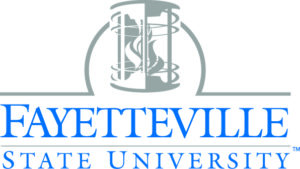 Founded in 1867, Fayetteville State University in North Carolina has a total enrollment of about 6,100. Ranked among the top 50 public schools in the region, and a top 30 HBCU, Fayetteville State has a 17:1 student-to-faculty ratio that supports collaborative, peer-to-peer learning while maintaining an intimate educational environment and one-on-one instruction. Among its core values and missions are student success and pursuit of excellence; shared governance; and global responsibility.
Founded in 1867, Fayetteville State University in North Carolina has a total enrollment of about 6,100. Ranked among the top 50 public schools in the region, and a top 30 HBCU, Fayetteville State has a 17:1 student-to-faculty ratio that supports collaborative, peer-to-peer learning while maintaining an intimate educational environment and one-on-one instruction. Among its core values and missions are student success and pursuit of excellence; shared governance; and global responsibility.
Fayetteville State’s online MBA in Health Care consists of 36 credits, including 27 core and 9 concentrations. All courses are designed for maximum flexibility to accommodate working professionals and adult learners, and students have the option to complete classes in synchronous, real-time virtual classes or through recorded lectures at their own time. Applicants should have earned at least a 2.75 undergraduate GPA. GMAT/GRE scores may be necessary. The program is accredited by the AACSB.
- Homepage
- Tuition Per Credit: $413
8. Walsh University
 Founded in 1958, Walsh University in Canton has a total enrollment of about 2,900 with satellite campuses in Akron, Medina, Canfield, and Castel Gandolfo, Italy. Ranked among the best regional universities in the Midwest, Walsh has a 13:1 student-to-faculty ratio, promoting an intimate, collaborative educational environment and one-on-one instruction. Three-quarters of all classes have fewer than 20 students, and none have more than 49. As a private Catholic university, it is endorsed by The Newman Guide to Choosing a Catholic College.
Founded in 1958, Walsh University in Canton has a total enrollment of about 2,900 with satellite campuses in Akron, Medina, Canfield, and Castel Gandolfo, Italy. Ranked among the best regional universities in the Midwest, Walsh has a 13:1 student-to-faculty ratio, promoting an intimate, collaborative educational environment and one-on-one instruction. Three-quarters of all classes have fewer than 20 students, and none have more than 49. As a private Catholic university, it is endorsed by The Newman Guide to Choosing a Catholic College.
Walsh offers an online MBA in Healthcare Management that consists of 36 hours. In addition to 6 core courses, students will complete Quality & Performance Management, Legal & Policy Aspect Healthcare, Healthcare Organization & Systems, and Healthcare Finance/Economics. From there, students choose between Not-For-Profit Accounting, Services Marketing, and Entrepreneurship/Innovation, plus a Healthcare Management capstone. Walsh’s highly flexible curriculum allows for students on an accelerated track to complete their degrees in as little as 12 months; students may also choose a hybrid delivery model. Upon graduation, students will be prepared for careers in hospitals, ambulatory care, physician practice management, long-term care, managed care, and pharmaceutical sales.
- Homepage
- Tuition Per Credit: $665
9. University of Massachusetts – Amherst, Massachusetts
 Founded in 1863, The University of Massachusetts Amherst is a public research university with a total enrollment of approximately 30,000. Ranked among the top 30 public universities in the country, UMass also receives high marks for veterans, and, as part of the Five Colleges consortium, students have access to courses at Amherst, Hampshire, Mount Holyoke, and Smith Colleges. The school’s 18:1 student-to-faculty ratio is impressive for a university of its size and supports a simultaneously collaborative and intimate learning environment. Half of all classes consist of fewer than 20 students and less than 20% have 50 or more. Of the university’s 250,000 alumni worldwide, notable graduates include Jack Welch, Catherine Coleman, Bill Paxton, Richard Gere, Greg Landry, Jeff Corwin, Buffy Sainte-Marie, and winners of the Nobel Prize, Pulitzer Prize, and more.
Founded in 1863, The University of Massachusetts Amherst is a public research university with a total enrollment of approximately 30,000. Ranked among the top 30 public universities in the country, UMass also receives high marks for veterans, and, as part of the Five Colleges consortium, students have access to courses at Amherst, Hampshire, Mount Holyoke, and Smith Colleges. The school’s 18:1 student-to-faculty ratio is impressive for a university of its size and supports a simultaneously collaborative and intimate learning environment. Half of all classes consist of fewer than 20 students and less than 20% have 50 or more. Of the university’s 250,000 alumni worldwide, notable graduates include Jack Welch, Catherine Coleman, Bill Paxton, Richard Gere, Greg Landry, Jeff Corwin, Buffy Sainte-Marie, and winners of the Nobel Prize, Pulitzer Prize, and more.
With over 10 years of experience, US News ranks UMass Amherst’s online MBA in Healthcare Administration 11th in the country. In addition to the MBA core curriculum, students customize their healthcare concentration through 9 elective credits like Health Economics and Reimbursement, Healthcare Quality and Performance Improvement, Data Management for Business Leaders, Ethical Issues in Public Health, Financial Management of Health Institutions, and Globalization and Health, among others. All course work is designed for maximum flexibility and can be completed 100% to accommodate working professionals and adult learners; there are three entry dates per year. The program offers a range of student services, the most helpful of which may be its advising team. The program is accredited by the AACSB.
- Homepage
- Tuition Per Credit: $825
10. University of Texas – Dallas, Texas
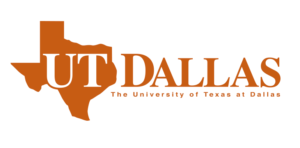 Founded in 1969, University of Texas – Dallas has a total enrollment just below 25,000 and is ranked among the top public schools in the region by US News. Washington Monthly, Times Higher Education, Princeton Reviews, and Kiplinger’s Personal Finance have all given UT Dallas high marks, as well. With a 21:1 student-to-faculty ratio, classes are kept to a manageable size to support a tight-knit educational community that features collaborative and individualized learning. More than a quarter of all classes have less than 20 students, and just 22% have 50 or more.
Founded in 1969, University of Texas – Dallas has a total enrollment just below 25,000 and is ranked among the top public schools in the region by US News. Washington Monthly, Times Higher Education, Princeton Reviews, and Kiplinger’s Personal Finance have all given UT Dallas high marks, as well. With a 21:1 student-to-faculty ratio, classes are kept to a manageable size to support a tight-knit educational community that features collaborative and individualized learning. More than a quarter of all classes have less than 20 students, and just 22% have 50 or more.
UT Dallas’s online MBA in Healthcare Leadership and Management is ranked among the top 10 online programs in the country. In addition to the core curriculum, students may take up to 15 credits in the healthcare specialization, including classes like American Healthcare System, Strategic Leadership of Healthcare Organizations, Healthcare Cost Management and Control, Healthcare Informatics, Electronic Health Records Applications, and Ethics in Healthcare Management, among others. Courses are designed for maximum flexibility and also emphasize an experiential learning approach to prepare students for real-world problems. Of the more than 40,000 UT Dallas MBA alumni, the school has a 90% placement rate, with graduates working at such diverse companies as Amazon, Chick-fil-A, Deloitte, Intel Security, Proctor & Gamble, SpaceX, TI and Toyota.
- Homepage
- Tuition Per Credit: $1,238